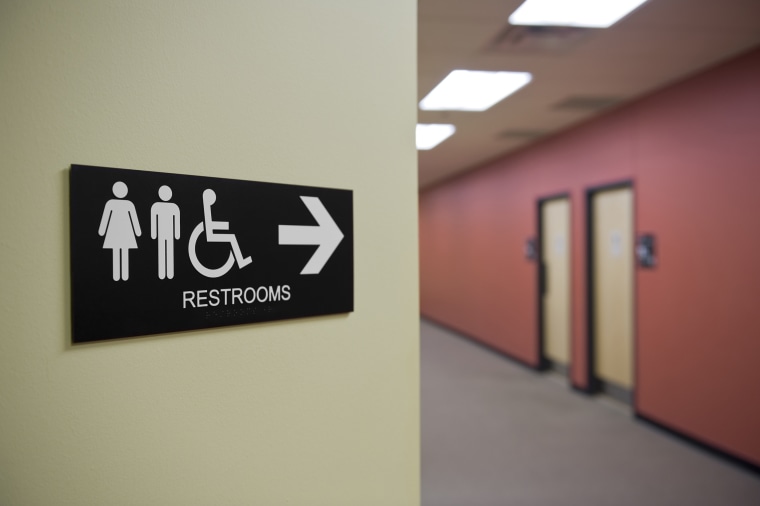The U.S. Equal Employment Opportunity Commission on Monday said employers refusing to use transgender workers’ preferred pronouns and barring them from using bathrooms that match their gender identity amounts to unlawful workplace harassment under federal anti-discrimination law.
The EEOC updated its enforcement guidance on workplace harassment for the first time in 25 years, including to reflect a landmark U.S. Supreme Court ruling that anti-bias laws cover LGBTQ workers, after an earlier attempt stalled during the Trump administration.
The commission in the new guidance also addressed the rise of remote work and said that discriminating against employees based on their decisions to have abortions or use contraception is a form of sex discrimination.
The guidance is not legally binding, but lays out a blueprint for how the EEOC will enforce anti-bias laws and can be cited in court to back up legal arguments.
Some Republicans and conservative and religious groups had criticized the expansive guidance after the commission unveiled a draft version in September. They said it conflicts with state laws on abortion and LGBTQ issues and fails to acknowledge that religious employers are exempt from anti-discrimination laws in many cases.
EEOC Chair Charlotte Burrows in an interview said the guidance reflects decades of court rulings that have expanded workers’ rights to be free from workplace harassment, and that updating it was necessary to ensure that employers are aware of their legal obligations.
“We felt we really needed to lay out the contours of the law and where it stands,” said Burrows, an appointee of Democratic President Joe Biden.
The Democrat-led commission approved the guidance in a 3-2 vote on Friday, with Republican Commissioners Andrea Lucas and Keith Sonderling dissenting, a spokesman for the agency said.
Lucas, an appointee of Republican former President Donald Trump, said in a statement that the guidance would push many employers to eliminate single-sex bathrooms and facilities for showering, dressing, and sleeping, exposing women to increased risk of harassment and assault.
“Biological sex is real, and it matters. Sex is binary (male and female) and is immutable,” she said.
More than one-third of the hundreds of thousands of worker complaints the EEOC received between 2016 and 2023 included allegations of harassment, the commission said.
The agency has recently filed high-profile harassment lawsuits accusing Walmart Inc of failing to stop severe sexual harassment of female workers by the manager of a West Virginia store, and claiming Tesla Inc has for years ignored complaints of rampant harassment of Black workers at its flagship Fremont, California, assembly plant. Both companies have denied wrongdoing.
The commission had not updated its legal guidance on harassment based on sex, race, and other protected traits since 1999, a year after the U.S. Supreme Court issued a major ruling, involving workplace sexual harassment.
The agency released proposed changes in January 2017, just as Republican former President Donald Trump was taking office and months before the #MeToo movement intensified scrutiny of workplace sexual harassment, but they were never finalized under Trump.
The lengthy new guidance covers an array of topics related to workplace harassment and reflects significant changes in the law over the last quarter-century, such as a 2020 U.S. Supreme Court ruling in Bostock v. Clayton County that said workplace discrimination based on sexual orientation or gender identity is a form of unlawful sex bias.
The commission said that while Bostock involved a gay worker’s termination and not harassment claims, the Supreme Court’s reasoning in the decision extends to cases alleging harassment of LGBTQ workers.
The commission in the guidance also detailed how harassment can occur even between remote workers, saying that conduct “within a virtual work environment” such as racist or sexist comments made during a video meeting can contribute to an unlawful hostile work environment.
And conduct that occurs away from work, including workers’ posts on their personal social media pages, can constitute illegal harassment if it affects an employee’s working conditions, the EEOC said.
